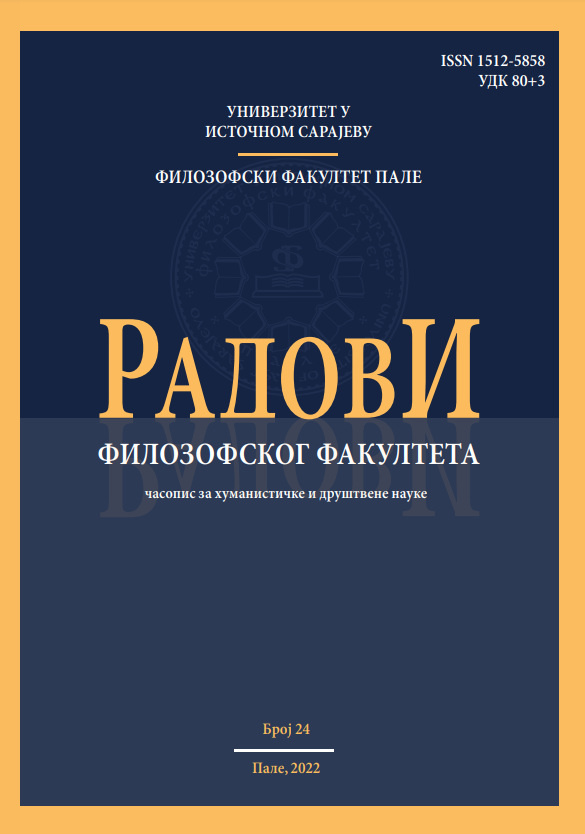НАУЧНО ОБЕЛЕЖАВАЊЕ ЈУБИЛЕЈА СРЕДЊОВЕКОВНИХ ДОГАЂАЈА: ПРИЛОГ ИСТОРИЈИ КУЛТУРЕ СЕЋАЊА У ДРУГОЈ ПОЛОВИНИ ХХ И ПОЧЕТКОМ ХХI ВЕКА
SCIENTIFIC MARKING OF THE ANNIVERSARY OF MEDIAEVAL EVENTS: A CONTRIBUTION TO THE HISTORY OF CULTURAL MEMORY IN THE SECOND HALF OF THE XX AND THE BEGINNING OF THE XXI CENTURY
Author(s): Dejan M. JečmenicaSubject(s): History, Middle Ages, Politics of History/Memory
Published by: Универзитет у Источном Сарајеву, Филозофски факултет Пале
Keywords: Аnniversary; Middle Ages; event; history; science; celebration/marking; cultural memory;
Summary/Abstract: Marking the anniversaries of mediaeval events was taken as a field of research of cultural memory through observing the scientific relation to history on appropriate occasions. The chronological framework of this study starts with the year 1949 when it was the 600th anniversary of the Code of Emperor Stefan Dušan (two years later, a publication was printed on that occasion), and finishes with 2021 when the 700th anniversary of the death of King Milutin were marked. In this period, which was slightly longer than seven decades, many years represented anniversaries of notable events from Serbian mediaeval history. Through an exhaustive review we singled out the anniversaries of those events which were the subject of scientific attention and brought data on the ways in which they were marked. It was of importance to see which institutions were the organisers of those scientific events and also to find out if they were supported by the state authorities. We tried to find out to what extend the current political context influenced the scientific marking of some anniversaries. At the end we tried to perceive in which way the awareness was about the need for scientific concern about the marking of important events actually built at the time when their jubilees were approaching and which institutions concerned themselves with this question the most.
Journal: Радови Филозофског факултета (часопис за хуманистичке и друштвене науке)
- Issue Year: 2022
- Issue No: 24
- Page Range: 43-63
- Page Count: 21
- Language: Serbian

